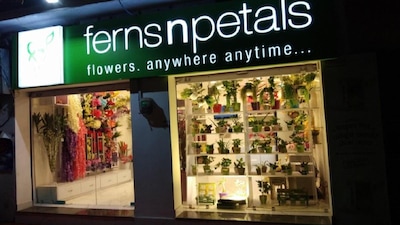A couple of years back Ferns & Petals’ (FNP) bottom line was wilting. Ambitious plans to scale up the business had gone awry. But CEO Pawan Gadia, who rues having blown up precious capital on advertising that didn’t really make any impact, says he has learnt from his mistakes.
Now, the company is re-booting the business with a quick-delivery effort. It is talking to logistics player to test 10-15 minute delivery in some locations. “If the customer wants it, let’s provide it. If I don’t do it, somebody else will,” says Gadia. The in-house initiative apart, FNP is also doing well on quick commerce apps such as Blinkit, Swiggy Instamart, and Zepto which now bring in close to 10% of the firms’ revenues.
The channel isn’t viable as yet but it’s important that it does turn profitable soon. That’s because the online channel is becoming increasingly popular with customers who want both convenience and speed. And, as Angshuman Bhattacharya, partner and national leader, consumer product and retail sector, EY-Parthenon, points out, quick commerce (q-comm) can also enable planned gifting. Anand Ramanathan, Partner and Consumer Industry Leader, Deloitte India, believes q-comm could overlap with gifting as consumers show a willingness to pay. “Gifting is an attractive segment especially with millenials willing to spend and be more involved,” he says. While online sales may not fetch FNP very big margins, they will help push up volumes and market share.
Also Read South Western Railway announces partial cancellation, diversion of trains for track maintenance Poco F7, F7 Pro quick review: Limitless value?
To be sure, FNP has some intrinsic strength. It has mastered the art of managing a complex supply chain, for fresh products, something that new players may struggle to do. Moreover, what it has going for it is a large consumer catchment.
There are today an estimated 60 million Indians with an annual income over Rs 30 lakh per annum; this cohort is expected to grow to 120 million by the end of the decade. For these consumers, expenses on essentials are approximately 40-50% of their income. Deloitte’s Ramanathan, points out, discretionary spends in India remain high despite having halved in the last couple of years. “The propensity to spend on gifting where there is more involvement is high.
» Read More


